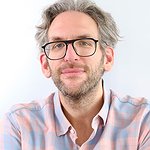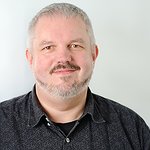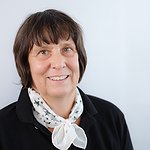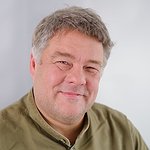Research Focus "Missionary Collections"

The objects collected by missionaries for various purposes are considered witnesses and mediators of religious and cultural contacts. This research focuses on contacts between European Christian cultures and non-European traditions, for example in South, Southeast and East Asia, but also in other regions.
The conceptually and methodologically innovative approach of the project lies in its deliberately planned interdisciplinarity. Representatives of cultural and social anthropology, art history of South and East Asia, Indology, sinology, archaeology and various area studies work together and deal with the holdings of missionary provenance.
The situation of missionary collections, which vary in size and composition, is problematic in many respects. Often, they are private collections owned by religious orders or missionary societies. In exceptional cases, collections or parts of collections are in institutions financed by the federal states, e.g. in ethnological or history museums. In many other cases, the private owners of such collections are unable to fully afford the preservation, documentation, and scholarly development of their collections. The character of the collections ranges from singular objects (often souvenirs and gifts), to thematically and regionally structured collections that were created by members of a religious order or a missionary organization, to extensive collections that were created based on a clearly outlined (educational) goal.
Regarding the preservation of these collections, one challenge is that most religious orders and missionary societies currently have neither sufficient funds nor personnel capacity to care for the object holdings. Over the past years, obsolescence and decreasing financial resources have repeatedly led to the fragmentation of collections, to the closure of museums belonging to the orders (e.g., “Haus Völker und Kulturen” of the Steyl Missionaries in St. Augustin) or to their takeover by new sponsors (e.g. Museum Forum der Völker of the Franciscans in Werl).
All these circumstances threaten a corpus of objects, documents, and archival materials that, in its entirety, can form the basis for significant research in religious studies, missionary and church history, historical sociology, and the history of science. In addition to the in some cases concrete threat to the collections due to a lack of financial and personnel resources, there is also an indirect challenge: mission collections are often discussed sweepingly in current cultural-political discourse as an expression of colonial rule. While they are certainly entangled, in many cases, with colonial power and imperial expansion, narrowing the focus on mission collections to this issue endangers the preservation of the collections for research purposes.
CERES sees its task in contributing to solutions that help preserve the collections and/or their scientific research through cooperation with different actors. In addition, in the event of the closure of a collection, there is always the question of where the collections can be housed. CERES itself has received a small missionary collection from the "African Missionaries - White Fathers e.V." from Cologne as a donation in July 2021. This collection contains ethnographic objects and handicraft items as well as extensive archival material.
In addition, the inventory of larger collections is one of the most important tasks for the near future. At present, it is not known how many collections exist in the possession of religious orders and missionary associations or missionary works. Likewise, a concept that ensures proper indexing and inventorying is lacking so far. Here, CERES can provide valuable expertise in collaboration with partners.
Another important issue is digitization. The advantages of digitization that goes hand in hand with inventory are obvious: in addition to textual inventories, 2D and 3D photographs could be produced, thus permanently securing access to the material. Scholars would also have the opportunity to access the material internationally. With the BMBF project "Digitization of Gandharian Artifacts: A Project for the Preservation and Accessibility of the Buddhist Art of Pakistan" (DiGa), CERES already has a high level of expertise in the field of digitization of sculptural objects, which can also be contributed here.
Ideas of such a virtual space for mission collections has already been implemented by CERES. At https://pages.ceres.rub.de/religionskundliche-sammlung-wwu/, researchers will find a digitized exhibition space from the Religious Studies Collection at the University of Münster. This collection was established by then professor of Religious Studies Anton Antweiler and contains some objects from the Pallottine mission in Australia. CERES has cooperated with this collection for quite some years now.
Nevertheless, the inventory and digitization are only a first step for further analysis.
The communication of research results outside the university environment is also a central pillar for CERES. Therefore, the results of the scientific examination of missionary collections will be presented to a broad public in the form of exhibitions in the future.
These numerous, quite diverse tasks that arise with regard to missionary collections cannot be handled by one institution alone. In dialogue with the various stakeholders, a strategy for preserving the collection and promoting research is to be jointly developed in order to secure the extensive stock of material in the long term from now on. The researchers working at CERES include experts with knowledge of historical and contemporary religions. CERES thus sees itself as part of a broad network of actors from the field of cultural policy and promotion, museums and collections, and universities.
For more information, see this PDF.
Affiliated Persons






